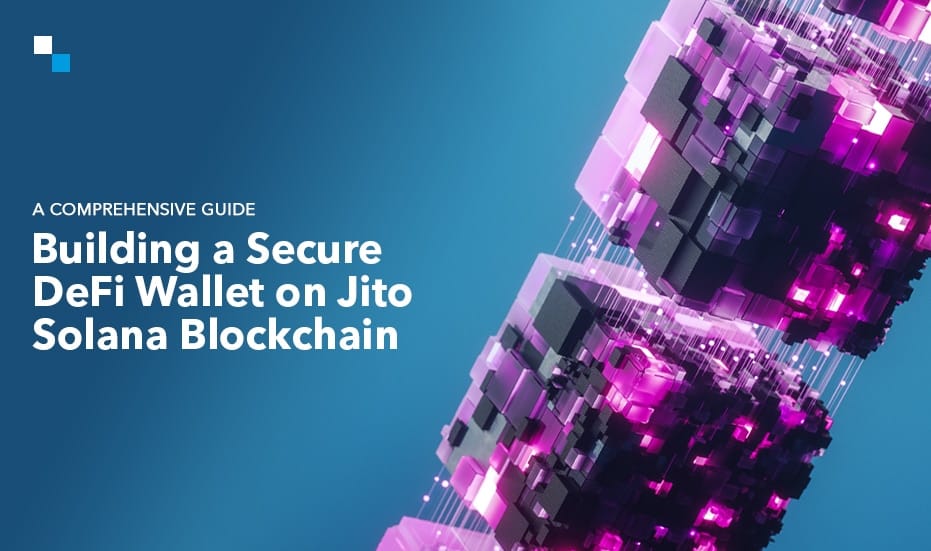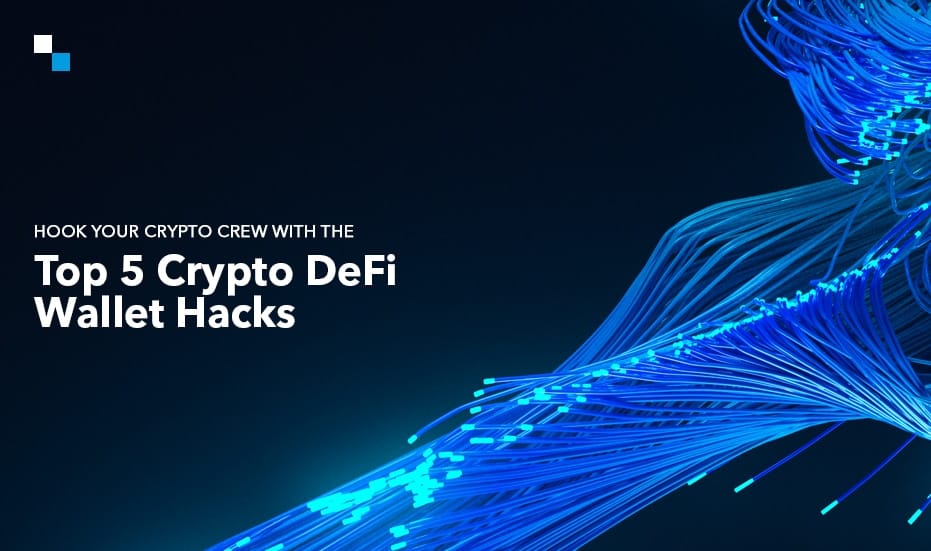
How is ICO Development Redefining Fundraising for Real World Assets?
January 15, 2025
How to Gamify Crypto Trading With New-Age White Label Crypto Exchange?
January 15, 2025Bitcoin Layer 2 (L2) technology has rapidly become a transformative force within the DeFi ecosystem. Leveraging Bitcoin’s robust blockchain foundation, L2 solutions like the Lightning Network, Rootstock, etc. have captured global attention, with transaction volumes and adoption rates skyrocketing in recent years. This rise is fueled by the demand for scalable and cost-efficient blockchain infrastructure, making Bitcoin L2 a preferred choice for developers and enterprises.
Integrating DeFi crypto wallets into Bitcoin L2 ecosystems has unlocked unparalleled opportunities for businesses and investors. By tapping into the immense liquidity and trust associated with Bitcoin—these wallets have become a cornerstone for financial innovation. The exponential growth of Bitcoin L2 usage instills confidence among investors, signaling lucrative returns and long-term stability in the evolving blockchain economy.
Defi Wallet Development on Bitcoin L1 Vs. L2
The key difference between Bitcoin Layer 1 and Layer 2 in DeFi wallet development lies in their approach to transaction processing. L1 is the base Bitcoin blockchain, ensuring the highest level of security and decentralization but suffers from scalability issues, resulting in slower transaction speeds and higher fees during network congestion.

L2, on the other hand, is a secondary protocol built on top of Bitcoin’s L1, such as the Lightning Network, which processes transactions off-chain, providing significantly faster and cheaper transactions. While L1 offers robust security and immutability, L2 addresses scalability, reducing costs and improving throughput. This makes L2 more suited for high-volume DeFi applications, whereas L1 remains optimal for applications prioritizing absolute security.

Why Investors Should Be Confident In Investing In BTC L2 Defi Wallets?
✔️ Enhanced Scalability and Cost-Efficiency
Bitcoin’s base layer, while renowned for its security, faces throughput limitations that hinder its scalability. These limitations are removed by the BTC Layer 2 DeFi wallet development solutions, which make use of Layer 2 technologies such as the Lightning Network to enable millions of microtransactions per second with low latency. Additionally, Layer 2 drastically reduces transaction costs by offloading activities to a secondary layer, making transactions highly affordable even during network congestion. This cost-effectiveness is critical for DeFi users frequently engaging in staking, lending, and swaps.
Key Investor Insight : Enhanced scalability and affordability attract a broader user base, increasing wallet activity and ensuring a steady revenue stream for businesses investing in DeFi wallet development services.
✔️ Lightning-Fast Transactions for Seamless Interaction
Speed is a cornerstone of DeFi’s success, where real-time financial interactions drive user satisfaction. DeFi wallet app development on Bitcoin Layer 2 ensures near-instantaneous transaction speeds, providing users with a seamless experience. This technological edge fosters higher user retention, setting the stage for scalable Bitcoin DeFi wallet platforms and broader market adoption.
Investor Confidence : Faster transaction processing bolsters user trust and satisfaction, leading to consistent growth for businesses that create their own DeFi wallet solutions.
✔️ Increased Accessibility and Global Inclusion
Layer 2 technology eliminates significant barriers, such as high fees and low speeds, enabling global access to DeFi ecosystems. Crypto DeFi wallets built on Bitcoin Layer 2 cater to underbanked regions and emerging markets, expanding the reach of decentralized financial services. This inclusivity ensures a growing user base and strengthens the wallet’s position in competitive markets.
Strategic Advantage : Businesses partnering with a top DeFi wallet development company can leverage these features to establish dominance in the evolving DeFi landscape.
✔️ Revenue Diversification and Future-Proof Scalability
Modern Bitcoin Layer 2 DeFi wallets integrate advanced features like staking, yield farming, and cross-chain compatibility, creating diversified income streams for businesses. The modular architecture ensures future-proof scalability, accommodating mass adoption and evolving market demands.
Investor Takeaway : Diversified revenue models combined with scalable solutions make BTC Layer 2 DeFi wallet development a sound investment for long-term profitability.
Bitcoin Layer 2 technology offers transformative solutions for building high-performance DeFi wallets, merging scalability with cost-efficiency and real-time speed. By addressing market demands like affordability, speed, and accessibility, Bitcoin Layer 2 DeFi wallet development solutions enable businesses to capture vast opportunities in decentralized finance. For businesses aiming to thrive in this competitive domain, partnering with a top DeFi wallet development company ensures innovation, profitability, and market differentiation.
Non-Negotiable Features of Bitcoin Layer 2 DeFi Wallet Development
If you wish to stay abreast in this cutthroat crypto market, the architecture of Bitcoin Layer 2 wallets must meet the highest standards to remain competitive. For investors, this ensures alignment with market demands, building confidence in the solution’s relevance and technological sophistication. This can be achieved only by inculcating advanced features in your BTC L2 Defi wallet solutions. Let us scroll down to check the exclusive features-

- Tokenized Bitcoin Support – BTC Layer 2 wallets now integrate tokenized Bitcoin (e.g., WBTC) to enable seamless interaction with DeFi protocols. This feature allows users to leverage Bitcoin’s liquidity in decentralized applications, broadening its utility beyond mere store-of-value purposes.
- Microtransaction Capability – Wallets can handle large numbers of microtransactions with low fees by leveraging Bitcoin Layer 2 scalability. This feature caters to decentralized gaming, tipping, and other niche markets demanding frequent low-value transactions.
- Smart Contract Integration – Modern BTC DeFi wallet platforms come equipped with Layer 2-enabled smart contract support, allowing users to interact directly with DeFi protocols for staking, farming, and borrowing without leaving the wallet interface.
- Lightning Address Integration – Bitcoin Layer 2 wallets are adopting human-readable Lightning addresses, making it easier for users to send and receive funds without the need for long, complex wallet addresses. This simplifies user onboarding and enhances accessibility.
- Privacy-Enhanced Transactions – Some advanced Bitcoin DeFi wallet platforms now offer features like ZKPs and Taproot integration, ensuring user anonymity and private transactions while maintaining compliance.
- Programmable Multi-Signature Features – Layer 2 wallets now incorporate programmable multi-signature functionality. This allows businesses and institutional users to set custom rules for fund withdrawals, making wallets more secure and versatile for organizational use.
- In-Wallet NFT Support – In addition to supporting Bitcoin and DeFi assets, crypto DeFi wallets are evolving to include NFT management, enabling users to store, trade, and showcase NFTs directly within the wallet.
- Modular Architecture – Leading DeFi wallet development companies are building modular wallet systems that allow businesses to add or remove functionalities, such as DeFi protocol integrations or advanced analytics dashboards, based on their needs.
Partnering with a renowned crypto DeFi wallet development company can help you craft innovative, feature-rich wallet solutions tailored to your business needs. With expert guidance, you can capitalize on emerging market opportunities and position your business for substantial profits in the competitive DeFi landscape. Connect with experts today!

How to Create a BTC DeFi Wallet Solution in Just 2 Weeks?
Here’s a breakdown of the process to start developing your own DeFi wallet on Bitcoin Layer 2 technology, creatively designed for efficiency and impact.
- Day 1–2 : Ideation and Roadmap Development
Define the purpose of your BTC L2 DeFi wallet development by identifying key features such as Lightning Network integration and multi-signature support. This stage involves collaborating with a DeFi wallet development company to create a comprehensive roadmap for seamless execution.
- Day 3–4 : Building the Foundation
Set up the development environment for your Bitcoin DeFi wallet platform using advanced tools like Bitcoin Core and Lightning SDKs. Ensure your backend framework is robust enough to handle high transaction volumes, a critical aspect of DeFi wallet development services.
- Day 5–6 : Backend Development and Protocol Integration
Develop the wallet’s backend infrastructure, focusing on secure transaction processing. Integrate Layer 2 protocols like the Lightning Network to ensure scalability and efficiency, making your Defi wallet development solution future-ready for high user demand.
- Day 7–8 : Designing the User Experience
Craft an intuitive UI/UX that makes your crypto DeFi wallet user-friendly and accessible across devices. A seamless design is essential for DeFi wallet app development, ensuring mass adoption and a superior user experience.
- Day 9–10 : Security Implementation
Embed industry-leading security features like multi-signature capabilities, cold storage, and encryption. Partnering with a top DeFi wallet development company ensures your Bitcoin Layer 2 DeFi wallet development is protected against modern threats.
- Day 11 : Rigorous Testing
Conduct comprehensive testing for your BTC DeFi wallet to ensure optimal performance and security. This phase includes stress testing, penetration testing, and debugging to create a reliable and scalable DeFi wallet app development.
- Day 12–14 : Deployment and Optimization
Deploy your BTC Layer 2 DeFi wallet platform on the mainnet, ensuring it’s accessible to users. Post-deployment focuses on optimization through user feedback, analytics, and updates, enabling businesses to start developing their own DeFi wallet tailored to market needs.
Now You Can Create a Future-Ready BTC DeFi Wallet For Your Business!
Partner with experts in DeFi wallet development services to ensure your wallet becomes a leader in the competitive Bitcoin Layer 2 ecosystem. Breaking down the development process into daily milestones makes creating a Bitcoin Layer 2 DeFi wallet platform an exciting and attainable goal. Expert planning, advanced tools, and creative execution will transform your wallet into a user-friendly, scalable, and profitable DeFi solution.
Hire DeFi Wallet Development Services For Profitable Solutions
The intersection of Bitcoin Layer 2 scalability and DeFi crypto wallet innovation offers an unparalleled opportunity for businesses and investors. By embracing Bitcoin Layer 2 DeFi wallet development, you can position yourself at the forefront of the financial revolution, tapping into a growing market with immense profit potential. Work with a top DeFi wallet development company like Antier to create cutting-edge solutions that deliver scalability, security, and profitability. Whether you are looking to enhance your DeFi portfolio or create your own BTC DeFi wallet, now is the time to leap into the future of DeFi.



